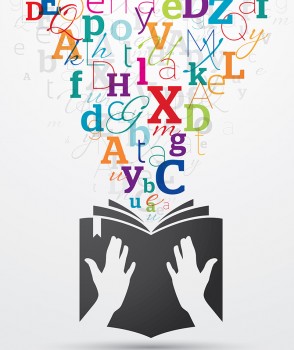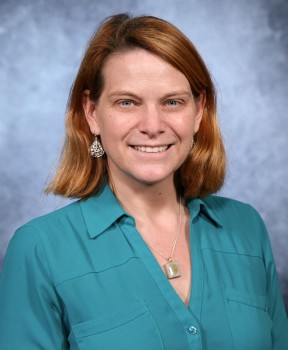Postdoctoral Fellow
University of Louisville - 2005

Mandy Maguire
Director, Center for Children and Families
Robinson Family Professor - Department of Speech, Language, and Hearing
Research Interests: The impact of home environment on children's brain and language development and learning
Professional Preparation
Ph.D. - Developmental Psychology
Temple University - 2003
Temple University - 2003
B.A. - Psychology
Pennsylvania State University - 1998
Pennsylvania State University - 1998
Research Areas
Overall research goals
In my research, we use EEG and behavioral measures to study language development. I am currently investigating how poverty influences brain and language development in preschool and school aged children.Influence of environment on brain and language development
My current work has focused a great deal on how early home environments might influence language abilities and learning in preschoolers as well as how this might impact later word learning in grade school (ages 8-15 years). For example, we found that children (ages 8-15) from lower income homes are more likely to struggle with word learning tasks in grade school. However, there is incredible variability in children from lower income homes, with many performing as well or better than than higher income peers. Additionally, it is not family income that predicts word learning outcomes, but a child's vocabulary size going into the word learning task, which is often lower in children from lower income homes. This has important implications for how vocabulary is taught in grade school class rooms. Additionally, we studied differences in how the brains of strong vs weaker word learners are engaged when performing the word learning task. We found that strong learners engage more high frequency neural oscillations (beta and gamma) which relate to integrating language in real time. On the other hand, children who struggle with word learning and more likely to engage more low frequency neural oscillations (theta) which has been linked to individual word retrieval and working memory. This provides new insights into individual differences in the word learning processing.Word Learning Reseach
Words allow children to create, differentiate, and reason about complex concepts. However, because even very young children seemingly acquire words with ease, the complexity and importance of this skill are often times underestimated and overlooked. Discovering how children learn words and what happens when this important and sometimes difficult process breaks down has been a driving force in my work. For example, in my graduate work with Dr. Kathy Hirsh-Pasek, we found that, quite different from noun learning, young children learn verbs more readily if they are given only one example of that action, repeated multiple times by the same actor, as opposed to seeing many different actors perform the same action (Maguire, et al. 2008). Thus, the strategy children use to learn a word changes based on the type of word to be learned. In my dissertation I addressed how word learning might differ based on children’s experiences. I found that by age 3, children who speak Spanish, Japanese, and English use different language-specific strategies to identify the meaning of an unknown verb based on their language’s typology (Maguire et al., 2010). This idea that children’s knowledge and experiences might influence how they approach word learning led to my interest in the vocabulary gap, and specifically how word learning might differ in at-risk, typically developing children from low SES homes. This is a driving question in my current research in which we have investigated how early differences in home enviornment might snowball into larger word learning differences in grade school (Maguire et al., 2018; Maguire & Schneider, 2019; Ralph, et al., 2020; Schneider et al., 2021;).Neural Oscillations Underlying Language and Cognition
In 2007, I was put in a unique position that allowed me to learn time frequency analysis to study neural oscillations, an analysis that is shifting the way we use EEG in cognitive neuroscience. I was asked by to help establish the EEG Core of UT Southwestern’s “Gulf War Project” until a full-time EEG researcher was hired. The project was fascinating, with ten individual research cores ranging from animal models through EEG and structural and functional MRI all with the goal of identifying the neurological ramifications of Gulf War Syndrome. I stayed on after the core manager was hired, working closely with an EEG research team that included behavioral neurologist John Hart, neurophysicist Thomas Ferree, and statistician Jeffery Spence. We found that analyzing the EEG to study changes in neural oscillations of participants with Gulf War Syndrome provided new windows into our understanding of cognitive processes and where they break down that were undetected using traditional ERPs. By applying these analysis techniques and skills to my current research I have become one of a handful of researchers who uses time-locked neural oscillations to study cognitive and language development (Maguire & Abel, 2013). Using these techniques, I address questions about the subtle, likely subconscious processes that underlie word comprehension and learning in adults and children (Maguire, Brier & Ferree, 2010; Maguire et al, 2015; Middleton et al., 2018). In recent papers with my student, Julie Schneider, who is now an assistant professor at LSU, (Schneider, et al., 2016; 2018; Schneider & Maguire, 2018; 2019) we have focused on identifying the relationship between ERPs and neural oscillations, specifically focusing on the relationships between the N400 and theta and the P600 and beta. We found that although similar cognitive tasks elicit N400/theta and P600/beta responses, ERPs and neural oscillations each uncover unique aspects of semantic and syntactic processing, making them complimentary ways to study the question of how the neural processing that support language development. These findings highlight the unique insights that this newly emerging and potentially powerful method of studying language development can reveal.Publications
Denicola-Prechtl, K., Rojas, R., Maese, M. A., Ventura-Lopez, S. B., Owen, M. T., Maguire, M.J. (2025). Patterns of clinical follow up for early language evaluations among Spanish-speaking families. Infants and Young Children. - publications
Benitez-Barrera, C., Denicola-Prechtl, K., Castro, S., & Maguire, M.J. (2025). A lot of noise about nothing? Speech-to-noise ratios rather than noise predict language outcomes in preschoolers. Journal of Experimental Child Psychology - publications
Schneider, J., Kim, J., Poudel, S., Lee, Y., & Maguire, M.J. (2024). Socioeconomic status and cognitive outcomes are predicted by resting-state EEG in school-aged children. Developmental Cognitive Neuroscience, 70, https://doi.org/10.1016/j.dcn.2024.101468 - publications
Benitez-Barrera, C,. Behboudi, M.H., & Maguire, M.J. (2024). Neural oscillations during predictive sentence processing in young children. Brain and Language. 254, 105437. https://doi.org/10.1016/j.bandl.2024.105437 - publications
Schneider, J. Behdoudi, M. H.,& Maguire, M.J. (2024). The necessity of taking culture and context into account when studying the relationship between socioeconomic status and brain development. Brain Sciences, 14(4), 392, DOI: 10.3390/brainsci14040392 - publications
Melamed, T., Maguire, M.J., Ralph, Y.K., Poudel, S. & Abel, A.D. (2023). The power of the written word: Comparing word meaning inferencing from auditory and written modalities throughout grade school. Journal of Experimental Child Psychology. - publications
Poudel, S. Denicola-Prechtl, K. Nelson, J., Behdoudi, M.H, Benitez-Barrera, C. Castro, S. & Maguire, M.J. (2023). Rethinking household crowding and children’s language environment. Developmental Psychology - publications
Schneider, J., Poudel, S., Abel, A., & Maguire, M.J. (2023). Age and vocabulary knowledge differentially influence the N400 and theta responses during semantic retrieval. Developmental Cognitive Neuroscience. - publications
Awards
Møller Undergraduate Teaching Award - UTD School of Behavioral and Brain Sciences [2022]
Nominee Provosts Award for Faculty Excellence in Undergraduate Research Mentoring, 2018, 2019, 2021, 2022 - University of Texas at Dallas [2021]
University of Texas Regents’s Outstanding Teaching Award Nominee - University of Texas [2018]
University of Texas at Dallas Distinguished Teacher in Diversity and Multicultural Education - University of Texas at Dallas [2018]
The Sandy Friel-Patti Research in Child Language International Travel Award - the Texas Speech-language and Hearing Association [2006]
Appointments
Director of the Center for Children and Families
University of Texas at Dallas [2024–Present]
University of Texas at Dallas [2024–Present]
Robinson Family Professor
University of Texas at Dallas [2024–Present]
University of Texas at Dallas [2024–Present]
Assistant Professor
The University of Texas at Dallas [2005–Present]
The University of Texas at Dallas [2005–Present]
Consultant
The Sandbox Learning Company [2004–Present]
The Sandbox Learning Company [2004–Present]
Consultant
Children's Hospital of Philadelphia [2003–2005]
Children's Hospital of Philadelphia [2003–2005]
Intern in Exhibit Research & Design
The Franklin Institute Science Museum, Philadelphia, PA [2002–2002]
The Franklin Institute Science Museum, Philadelphia, PA [2002–2002]
Research Intern
Developmental Neuropsychology & Electrophysiology Lab, Louisville, KY [2001–2001]
Developmental Neuropsychology & Electrophysiology Lab, Louisville, KY [2001–2001]
Research Assistant
The Center for Cognitive Brain Imaging, Pittsburgh, PA [1998–1999]
The Center for Cognitive Brain Imaging, Pittsburgh, PA [1998–1999]
Undergraduate Research Assistant
Pennsylvania State University [1996–1998]
Pennsylvania State University [1996–1998]
Additional Information
NSF: Resilience and risk in word inferencing and vocabulary growth for grade schoolers from low socioeconomic status homes
Current Research Grants: NSF Research Experiences for Undergraduates
This grant funds a yearlong, 42-week paid internship that will provide 10 undergraduate college students with the tools and connections to combine high-quality, developmental research with an empirically driven, community-based outreach program.Recent Grants: NSF 1551770 How poverty impacts brain and language development: Understanding the vocabulary gap
In this grant, we studied how growing up in a household experiencing low income may result in differences in word learning throughout grade school using EEG and behavioral measuresNews Articles
NIH Grant to Advance Callier Researcher's Work
Dr. Mandy Maguire, an assistant professor in UT Dallas’ School of Behavioral and Brain Sciences, was recently awarded a $74,000 grant from the National Institutes of Health (NIH) to develop a mechanism that links brain response and eye tracking technologies into a platform that records results from both processes simultaneously.Researchers study brain responses elicited by visual stimuli to gain insight into brain processes in a variety of developmental disorders, including dyslexia and attention-deficit hyperactivity disorder. But conducting these studies is difficult or impossible for groups of people who can’t sustain visual attention, such as infants, young children with autism and patients with dementia.
Study Reads Between the Lines in Children's Vocabulary Differences
 The nation’s 31 million children growing up in homes with low socioeconomic status have, on average, significantly smaller vocabularies compared with their peers.
The nation’s 31 million children growing up in homes with low socioeconomic status have, on average, significantly smaller vocabularies compared with their peers.A new study from the Callier Center for Communication Disorders at The University of Texas at Dallas found these differences in vocabulary growth among grade school children of different socioeconomic statuses are likely related to differences in the process of word learning.
Neuroscientist Gets Grant to Study Differences in Children's Vocabulary
 A UT Dallas researcher has been awarded a $515,000 grant from the National Science Foundation to utilize a relatively new technique that uses time frequency analysis of electroencephalogram (EEG) signals to help determine why children who live in poverty have smaller vocabularies.
A UT Dallas researcher has been awarded a $515,000 grant from the National Science Foundation to utilize a relatively new technique that uses time frequency analysis of electroencephalogram (EEG) signals to help determine why children who live in poverty have smaller vocabularies.Dr. Mandy Maguire, associate professor in the School of Behavioral and Brain Sciences, said the technique will look at changes in EEG signals to study brain processes in school-age children as they learn new words. Behavioral observation also is a key part of the study.